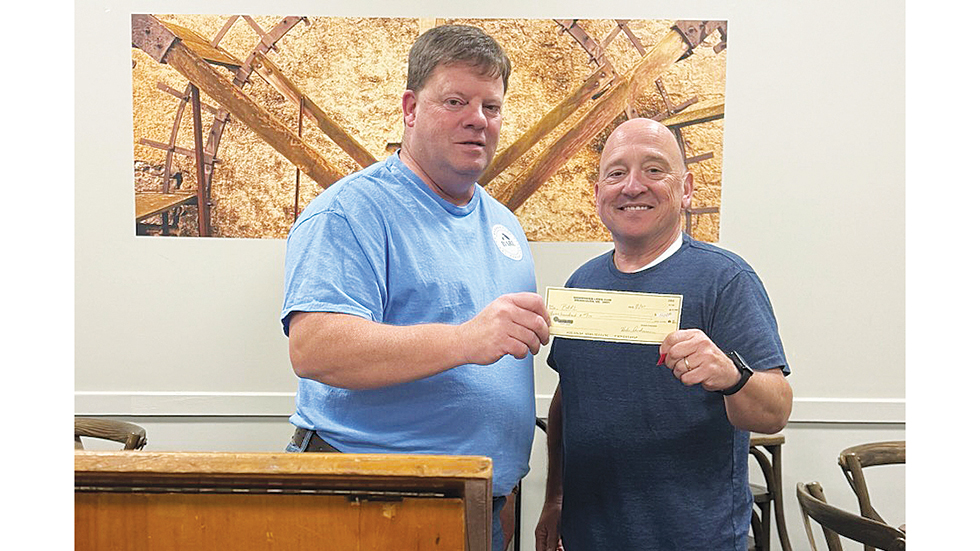Locals: Bill not perfect; better than nothing
Published 6:00 am Tuesday, November 26, 2002
Lincoln County lawmakers offered generally positive reviews of abusiness liability compromise bill approved late Monday by both theHouse and the Senate.
Dist. 92 Rep. Dr. Jim Barnett said the compromise was “prettygood.”
“The only thing I don’t like about it is it took us so long toget there,” Barnett said about the special session that has lastedalmost three months and cost over $1.6 million.
Trending
Barnett said the bill was held in the House Monday night on amotion to reconsider. Final approval was expected Tuesday during ashort morning session and then the bill would go to thegovernor.
Dist. 39 Sen. Cindy Hyde-Smith said a compromise is usually goodwhen everybody doesn’t get everything they want. She indicated thatis what happened with the business liability legislation.
“I think we addressed a lot of issues that needed addressing,”Hyde-Smith said. “It’s not the best bill, but it’s the best we’regoing to get.”
Hyde-Smith said the bill deals with a number of venueconcerns.
Lawsuit filings, she said, will be limited to the county wherean alleged incident occurred or where the defendant resides. Fornon-resident defendants, filings can be where the plaintiff residesor where an alleged defective product was obtained, she said.
“It’s some language in there that we can work with,” Hyde-Smithsaid.
Trending
A recent hang up in negotiations involved lawsuit protection for”innocent sellers.” Those are small businesses and merchants thatsell a product over which they have no control.
Under the compromise, patterned after some Missouri legislation,a trial court judge has the discretion to remove innocent sellersfrom the lawsuit. Hyde-Smith said the removal is not automatic, butcould be done early in the lawsuit process.
“He has the ability to remove the innocent seller,” Hyde-Smithsaid.
Hyde-Smith said the bill will have to go through some tests andtrials, but language in the bill should produce some positiveresults.
“The things we were trying to accomplish, we have an opportunityto accomplish through some of the language,” she said.
Hyde-Smith said lawmakers had worked hard on the bill andaccomplished their goal. Responding to some criticism, shecommended lawmakers for their diligence in reaching anagreement.
“Sometimes, this is just the way the process works,” Hyde-Smithsaid. “When you give up and go home, you’ve lost.”
Dist. 53 Rep. Bobby Moak sounded a little less positive aboutthe bill than some of his counterparts.
“I kind of have mixed emotions about it,” Moak said. “It couldbe a lot worse. It could be a lot better.”
Moak, who also supported the legislation, expressed concernsabout repeal of railroad venue related regulations and deletion ofan appeal bond penalty provision that he thought would notencourage settlement of cases during that process. Both wereincluded by the Senate in the conference report and not debated inHouse, he said.
“There’s a lot of different nuances that in practice may be goodor bad,” Moak said.
Like Hyde-Smith, Barnett expected the compromise legislation toface challenges ahead.
“I think the trial lawyers will go straight to the supreme courtto try to get some things struck,” Barnett said.
Barnett added that the Missouri law had been upheld in earlierchallenges. He was hopeful the Mississippi law would meet the samefate.
Moak said the compromise legislation has an effective date ofJan. 1, 2003. He expected a “flood of claims” to be filed beforethe effective date and the new laws that would governlawsuit-related activity.
“Probably everything under the sun will be filed,” Moaksaid.
As far as the compromise after it takes effect, Moak indicated await and see approach.
“We’ll just have to throw it out there and see how it works,”Moak said.





